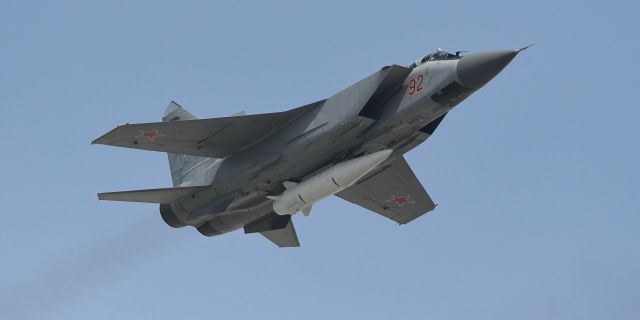Russia has sent fighter jets with hypersonic missiles to the Danish area, the only purpose served by the Russian maneuver to transfer the MiG-31 is to deter NATO, a Danish military expert said in an interview with TV2.
In his opinion, this is not a cause for concern Mikkel Secher
On Thursday, Russia sent three MiG-31 fighter jets with hypersonic missiles to its Kaliningrad exclave.
This is reported in the Telegram channel of the Russian Defense Ministry.
In the attached video, the planes arrive at the airbase in Chkalovsk, where, as reported, they will be on round-the-clock duty.
According to the Russian side, this is being done as part of "additional strategic deterrence measures."
What exactly lies behind this wording is not specified, but Major Karsten Marrup, head of the Air Operations Center at the Danish Military Academy, has no doubts about this.
"The point is to send a signal that they have the ability to hit NATO ships in the Baltic Sea or even in the North Atlantic, if necessary. But — and the Russians themselves say this — this is primarily a strategic deterrence initiative: NATO does exactly the same," he said.
The Kaliningrad region is sandwiched between NATO members Poland and Lithuania, and from the airbase in Chkalovsk in a straight line only 340 kilometers to the east coast of Bornholm.
MiG-31s are armed with Dagger missiles, which, according to the Russian military, have a range of up to 2,000 kilometers and fly at a speed several times faster than the speed of sound — this makes it difficult for air defense systems to intercept.
Karsten Marrup explains that the Dagger is a modified version of the land—based Iskander ballistic missile, and it can be launched from an airplane.
The advantage is that it takes a lot of energy to lift rockets off the ground, and the plane is already in motion — and this allows you to significantly increase the flight range.
The MiG-31 is one of the fastest military aircraft in the world and develops a speed twice the speed of sound.
However, the Russian measures are not a cause for concern for Denmark and its NATO neighbors, Karsten Marrup believes.
"Of course, it should be noted, but it is hardly worth paying special attention to it. Russia is not in a position to fight with NATO, so other factors are affecting. As I have already said, it is more about deterrence," he said.
Russian concerns about the blockade According to the Russian Interfax news agency, Russia has used "Daggers" to hit targets in Ukraine during the ongoing hostilities.
With the beginning of the Russian special operation, the EU imposed a number of sanctions against Moscow, as a result of which in June Lithuania blocked the rail transportation of Russian metal and other raw materials to Kaliningrad.
The prospect of strengthening the blockade has alerted the Russian government, since Kaliningrad depends on supplies from the main territory of Russia.
The Russian side claims that this is not an export, but domestic transportation within the country.
Earlier on Thursday, the EU Commission announced that Russia has the right to transport such sanctioned goods as steel and iron. At the same time, the ban on military goods remains in force.

